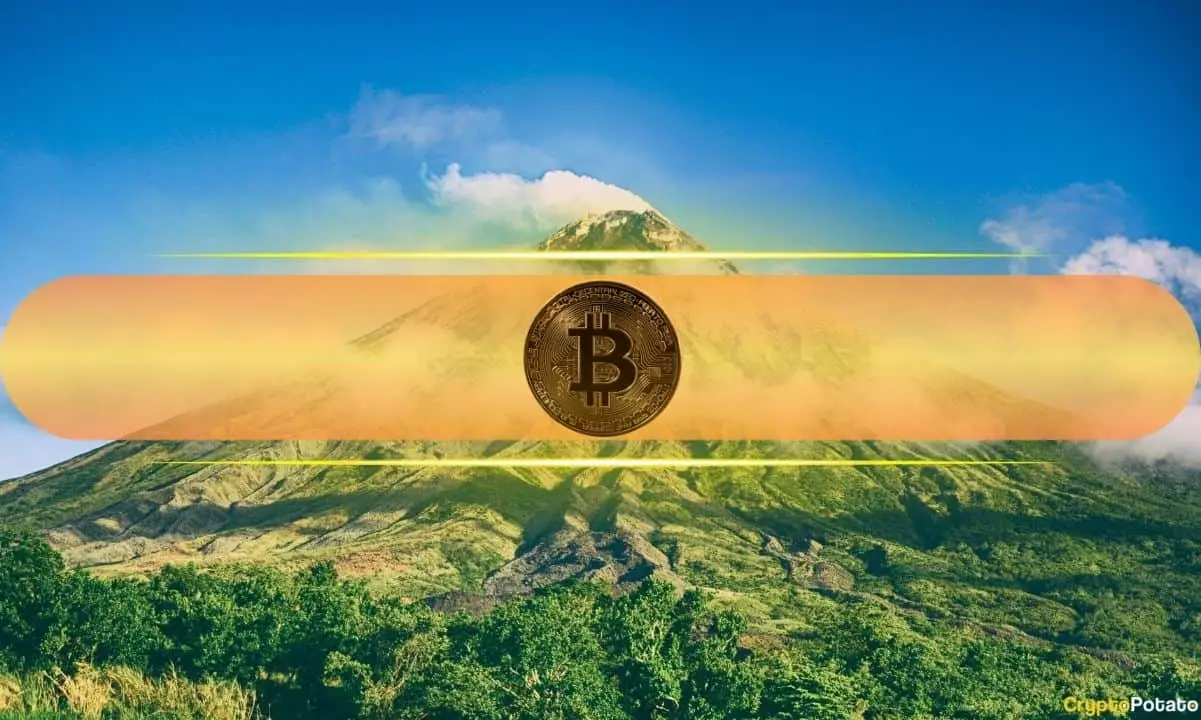El Salvador’s recent agreement with the International Monetary Fund (IMF) marks both a significant step and a precarious balance in its economic landscape, which has become inseparable from its tumultuous flirtation with Bitcoin. As the nation dives deeper into an Extended Fund Facility (EFF) arrangement, skepticism surrounds its ambitious agenda — especially as it tries to mesh traditional fiscal discipline with an often unpredictable crypto strategy. The question looms: can a nation effectively navigate the treacherous waters of cryptocurrencies while securing financial stability?
The IMF’s assessment heralds initial successes like meeting key fiscal targets and pushing for governance reforms. Yet, there exists a thorny paradox — El Salvador’s pursuit of Bitcoin as a centerpiece of its economic strategy could weaken the very foundations it seeks to bolster. The agreeability of fiscal reforms stands at odds with a cryptocurrency strategy that seems to zigzag between innovative ambition and erratic reality.
Glimmers of Strength Amidst Socioeconomic Strain
Despite burgeoning ambitions, it is crucial to view El Salvador’s economic performance not through rose-colored glasses but with a discerning eye. Investor confidence and remittance inflows, the twin pillars propping up nominal growth, are overshadowed by the broader macroeconomic risks generated by impulsive crypto policies. The government asserts that its fiscal tightening efforts — involving cuts in public spending and an overhaul of civil service benefits — are necessary measures for economic sustainability. But it’s a dangerous gamble when entrepreneurship tends to thrive on confidence and stability, not austerity.
Moreover, while the nation has met initial benchmarks, one cannot overlook the heavy reliance on external forces like the IMF. However commendable the progress, it unfolds under the shadow of international governance that may contradict national interests. As the IMF demands a limitation on Bitcoin holdings, one must ask whether the Salvadoran government’s desire to hold on to crypto will only create friction down the road.
The Glaring Contradiction of the Bitcoin Directive
One of the most disconcerting developments in this economic narrative is the stark discord between Bitcoin policy and fiscal conservatism. In a bizarrely optimistic stance, the national Bitcoin Office persistently pursues an agenda of buying one Bitcoin daily, seemingly at odds with IMF recommendations. As of now, the country’s Bitcoin holdings stand at a staggering 6,190 BTC, seemingly placing local governance in a precarious predicament against the traditional advocates of fiscal behavior.
This leads to an inevitable conclusion: how can governance prioritize fiscal discipline while simultaneously promoting cryptocurrency’s speculative nature? Deterioration of fiscal stability invites more questions than answers, making one wonder whether El Salvador is courting financial ruin in the name of innovation. Moreover, President Nayib Bukele’s unabashed enthusiasm for cryptocurrency speaks volumes about the government’s potentially reckless embrace of a digital currency that has already exhibited extreme volatility.
Is Financial Independence Worth the Risk?
While the Salvadoran government can boast about progress, it remains crucial to weigh the scales against potential downturns in investor sentiment which may stem from economic instability. The roadmap sketched out involves ambitious fiscal reforms buttressed by an unwavering commitment to Bitcoin, creating an economic framework that could either soar or stumble based on the whims of the cryptocurrency markets.
As El Salvador navigates onward, the pressing need for regulatory frameworks becomes evident. Policies linking public sector involvement in Bitcoin with economic viability may yield diminishing returns, increasing pressure from the IMF. The existing timeline for this relationship is tenuous; any misstep might escalate the risks of economic implosion, prompting international scrutiny.
The crux of the matter rests on a pivotal reflection: Is it truly prudent to tether national economic recovery to a market known for wild price fluctuations? At what juncture does ambition veer into recklessness, and when can one expect the potential fallout from such dependence? El Salvador presently stands at a critical juncture; the implications of these economic strategies stretch far into the future, rendering essential a cautious and well-rounded approach.















